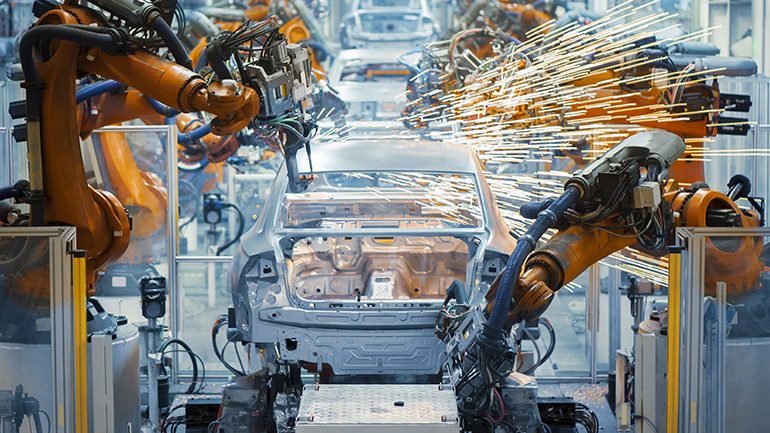Like it or not, trends suggest that our future will be increasingly automated. A study from l’Institut du Quebec found that 1.4 million jobs in the province are at risk of disappearing or being radically transformed, due to automation. Research firm Forrester predicts that Robotic Process Automation (RPA) will make 9.2 percent of all jobs in America obsolete and will spur the creation of less than one-fifth of that number of new jobs.
Automation is happening across all sectors, in thousands of forms: hotel reservation systems that can handle 10,000 calls at a time in 36 languages, thanks to computerized natural language processing; factory robots that can spot miniscule manufacturing defects with a speed and precision unmatched by humans. Automation is also at the heart of the Facebook chatbot that tells you about outings and events in your neighborhood.
Automation: accelerator of the digital transformation
From the wheel to the aqueduct, humans throughout history have automated technologies and processes that are part of their daily lives. So why is automation the subject of heated discussion in 2018?
It’s because we’re at a turning point in the history of automation. The rise of artificial intelligence (AI) has led to the creation of robots and algorithms that can learn, adapt and make choices, and these technologies are available for ever-cheaper prices. Today’s machines can do so much more than repeat simple sequential tasks.
On top of robotic arms, internet-connected devices and learning algorithms are now entering the mainstream commercial market. In the near future, we will be able to automate simple tasks during our workday, as organizations build comprehensive automation architecture to help automate client processes. By digitizing processes from end-to-end, organizations will generate more data than ever before thanks to platform measurement tools, bots and algorithms. This data will be exploited to develop new capacities through machine learning and prediction, which will in turn inform new personalized solutions for clients.
The inevitable evolution of our work
Even though Amazon has more than 100,000 robots currently picking orders in warehouses, the company still employs people to supervise and troubleshoot these robots – employees who used to walk through the warehouse to pick up items and pack orders. It shows that even the most automated ecommerce platform still requires people to function.
Generally, when we think about automation, we think of the elimination of jobs: grocery stores without cashiers, retail stores with no employees, driverless taxis and transport trucks. While these realities are accurate, automation also leads to people doing different work or providing new or better services. In sectors including marketing, logistics, finance and human resources, automation will provide an organization’s remaining human employees with much more flexibility in their jobs, and allow them to focus on the most important tasks.
Our capacity to work with these new technologies in our organizations will help improve efficiency, scalability and innovation over time.
A need for skills development on a societal level
For businesses, the fear of being ‘Amazoned’ looms large. Amazon upends every market it touches through the skillful application of automation and artificial intelligence. As a result, decision makers and investors in all sectors are being challenged to prepare their organizations and their employees to embrace automation. Directors need to learn about automation to understand the implications, and to reinvent their organization with an eye toward sustainability in an automated future. It would be a mistake however to think that automation alone can keep an organization competitive: social and cultural innovation will be as essential to success in the future as new technology.
The reality is that the successful implementation of automation requires capital and a skilled workforce. Engineers and supervisors, along with people who handle optimization, maintenance, analysis, and operations of automation systems are all critical to the success of the technology. Knowing this, organizations need to commit to sustained investment in automation technology while supporting a transition of work methods, skills and the nature of jobs themselves toward an automated workplace.
It’s possible to co-create a new automation-friendly workplace that includes employees, while also reimagining the nature of work and value creation in the context of these new technologies. But the social and economic consequences of ignoring the advances of automation will be devastating if government, private organizations and educational institutions do not address the emerging reality head-on through skills development and new work methods.
Automation is already reinventing the relationship between man and machine. The challenge now is to create the conditions through which we can leverage this ancient relationship to reach new heights of innovation.
By Jean-Baptiste Audrerie


1 Comment
Ali Q
March 14, 2018 09:40Keep building robots our kids don’t stand a chance they will expire before their times who will buy houses cars and take taxi cabs if there is no work to get too government should intervene
Leave a Reply